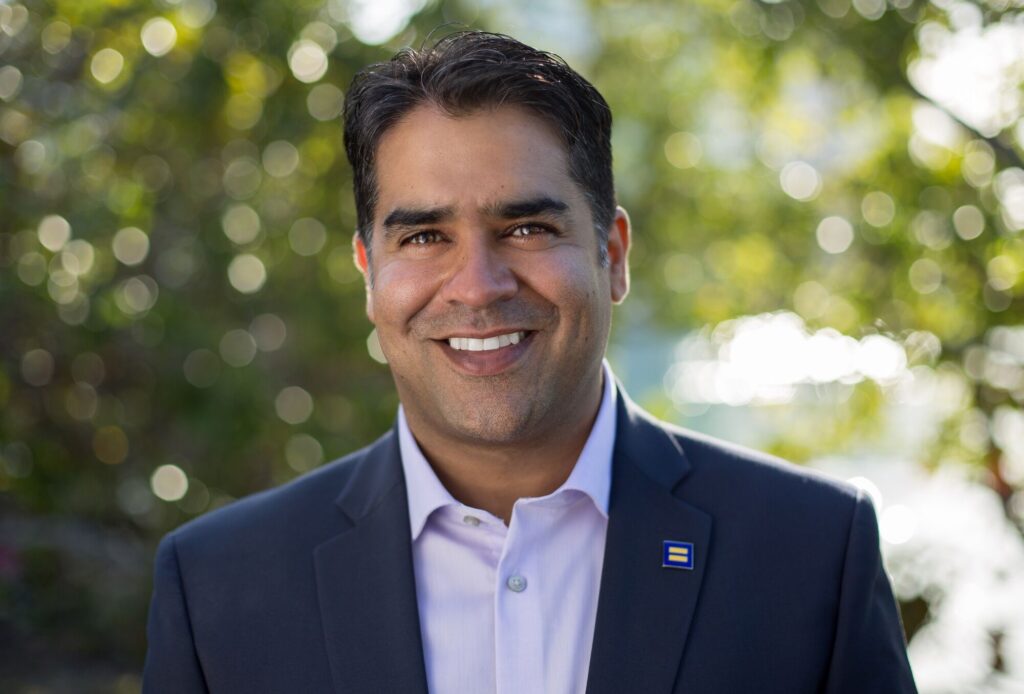PUC confirmation hearing reopens partisan battles with accusations of bias
A Senate committee hearing Thursday on the confirmation of two Public Utilities Commission (PUC) appointees opened up old partisan wounds.
Republicans and Democrats thoroughly questioned the appointees – one a Republican, the other a Democrat – over spiking electric rates, federal carbon pollution standards and the potential for bias.
The Senate Agriculture, Natural Resources, and Energy Committee recommended the confirmations of Republican Wendy Moser and Democrat Jeff Ackermann, who each came with controversial backgrounds.
Those recommendations head to the full Senate for formal confirmation.
Gov. John Hickenlooper, a Democrat, appointed the commissioners in January, when they replaced former commissioners Joshua Epel and Glenn Vaad.
As a former executive for Black Hills Energy, which serves the Pueblo community, Moser was questioned about her ability to remain impartial in making decisions governing the embattled Black Hills Energy and other utilities across the state.
Meanwhile, Ackermann left his role as the executive director of the Colorado Energy Office. The Energy Office has been a popular target for Republicans, who criticized it for being unable to justify tens of millions of dollars in spending over a six-year period. Those revelations came from a 2013 audit. The office has since made “significant improvements,” according to a follow-up review.
Sen. Leroy Garcia, D-Pueblo, especially dug into Moser, a former vice president of Black Hills Energy, where she focused on regulatory issues. Moser most recently worked government relations for Charter Communications.
Black Hills became a target because the utility has some of the highest electric rates in the state. Rates in Pueblo can be more than 30 percent higher than the rest of Colorado. Despite the high rates, Black Hills requested that the PUC approve an additional $8.5 million in annual revenue.
The PUC, under Commissioner Frances Koncilja and former commissioners Epel and Vaad, in December issued a written decision lowering the request to less than $1 million per year.
Black Hills has asked for a reconsideration of the December decision, and that Koncilja be recused from any further consideration because she has repeatedly criticized the utility, using strong language in doing so.
The controversy over Black Hills comes as the utility plans to assist fewer low-income customers. The utility is expecting a 50 percent drop.
The Black Hills request for millions in additional revenue is meant to offset the purchase of a $61 million turbine that was added to a Pueblo power station.
With new PUC commissioners, Black Hills is hoping that it can overturn the December decision, which calls into question Moser’s role on the PUC, having previously worked for the utility.
In her opening remarks before the committee, Moser failed to disclose her previous relationship with Black Hills. But Garcia was sure to point it out. He said he has received dozens of emails and phone calls from constituents who are concerned.
“Do you believe you’ll have any bias in your former role as a senior counselor for Black Hills, which has an economic interest to be able to provide for its shareholders, and now somehow try to balance that role and responsibility as a commissioner on behalf of all ratepayers?” asked Garcia, who cast the lone “no” vote against Moser’s confirmation.
“I want to ensure that as the Public Utilities Commission moves forward, that the commission as a whole is not tone deaf to what’s going on in Colorado.”
Sen. Rhonda Fields, D-Aurora, said she also has received questions from constituents.
“There seems to be some concern about your former employer of Black Hills energy and there seems to be some concerns about your ability to be on the commission,” Fields said.
Moser assured lawmakers that her prior work experience would not be a problem, and that it would serve her well.
“It is not a bias or an impartiality to do my job as a lawyer to advocate zealously on behalf of who I represent … As I step into a commissioner role, the job of the commissioner now is not to advocate. My role now … is to balance the right of an investor-owned utility to be sure that their financial integrity is maintained. We also have a statutory obligation to make sure that rates are balanced and fair.”
On the other side, Ackermann fielded concerns from Republicans, who repeatedly questioned him on the federal Clean Power Plan.
The committee recommended by a vote of 8-3 to confirm Ackermann, who serves as chairman of the commission.
The U.S. Supreme Court last year delayed implementation of the Clean Power Plan. Colorado would be required to cut carbon-dioxide emissions by 28 percent by 2030. Nationally, the plan calls for a 32-percent reduction. The mandate is opposed by the Trump administration.
Hickenlooper toyed with the idea of moving forward with the standard despite the uncertainty, calling for a 25-percent reduction in carbon dioxide emissions from the power sector by 2025, and a 35-percent reduction in emissions by 2030. But he has since backed off the idea.
“Coming from the governor’s energy office … the governor said that he was going to comply with the Clean Power Plan come hell or high water. Do you support the Clean Power Plan? Do you believe the PUC could force compliance of the Clean Power Plan?” asked Sen. John Cooke, R-Greeley.
Ackermann responded, “The commission is not a body that’s looking to get out in front of laws or rules or regulations in terms of whether they are federal or state. We are working within those four corners of the laws and the rules that are promulgated from those laws and how they apply to a utility making investment choices regarding future generation.”











